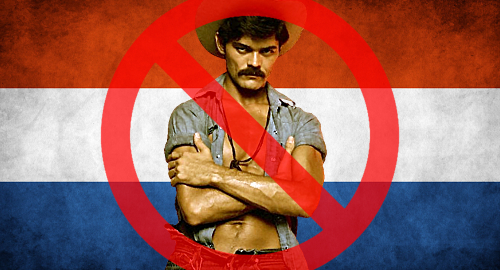 Online gambling operators who ‘actively’ target Dutch gamblers will be excluded from the new regulated market, at least temporarily.
Online gambling operators who ‘actively’ target Dutch gamblers will be excluded from the new regulated market, at least temporarily.
On Friday, Netherlands Justice Minister Sander Dekker provided his written response to three questions put to him by the Dutch Senate during Tuesday’s debate on the Remote Gaming Bill. Local publication Gaming in Holland posted the letter (read it here, in Dutch) and we’ll recap the highlights below.
To the question of which international operators will be eligible for a new Dutch online license, Dekker said he wished to exclude “illegal operators who continue to actively [emphasis by Dekker] focus on the Dutch market.” Dekker noted that his preferred terminoloy for such operators was “cowboys.”
Dekker appeared to define ‘actively’ as operators who offer customers the use of popular Dutch payment processor iDeal, use a Dutch domain name or market directly to Dutch customers.
Dekker previously stated that operators sanctioned by the Kansspelautoriteit (KSA) regulatory body would have to serve an unspecified ‘time out’ before becoming eligible for local licensing. On Friday, Dekker wrote that an applicant who fit the ‘actively’ criteria could ensure “its future reliability by showing good behavior during a consecutive period prior to the license application.”
Dekker also addressed the issue of online gambling advertising, saying Dutch licensees would be prohibited from inciting “excessive participation” or targeting “socially vulnerable” groups, including younger adults.
Operators also won’t be able to use popular athletes as pitchmen or partner with ‘influencers’ whose social media following is primarily underage or young adults. And there will be no promotion of live betting during sports broadcasts and a total TV advertising blackout will apply from 6am to 7pm.
Dutch law restricts efforts to censor the internet, and Dekker said the KSA’s capacity to block unauthorized gambling sites is “extremely limited.” However, Dekker claimed the Bill would empower the KSA to issue “binding instructions” on payment processors, marketing firms and other unspecified ‘service providers’ that should make life difficult for any operator not holding a Dutch license.
The Senate will resume its debate on the Remote Gaming Bill – and a separate bill to privatize land-based gambling monopoly Holland Casino – on Tuesday (12). A vote was originally expected to take place on this date but last Tuesday’s hearing cast some doubt on whether that goal is still achievable. Much will depend on whether Dekker’s responses will prove satisfactory.